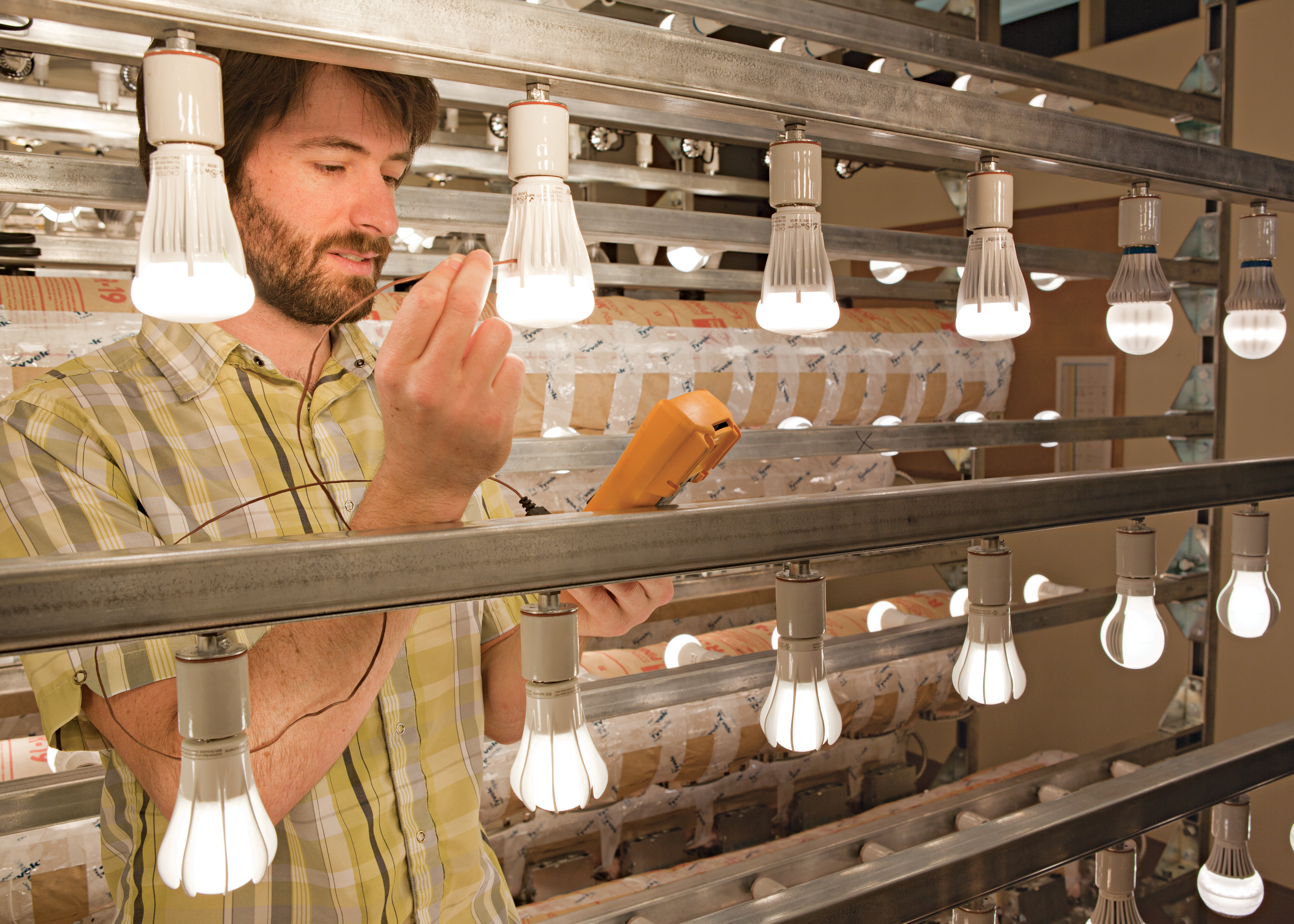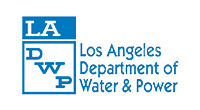Key Accomplishments 2016

Advanced Key Research Projects
As part of the NEPTUNE program, the EEC and its affiliated research centers are undertaking four research projects. Each project will help the Navy reach its energy goals and will employ and train undergraduate and graduate level students that are prospective, current, and former military personnel.
- Plug-in Electric Vehicle Decision Making Data Based Tools: Researchers are using and combining existing datasets to create and improve analysis tools for PEV use and electric vehicle infrastructure location and use.
-
Occupancy Sensing for Lighting Controls in Outdoor Applications: Researchers are developing new, improved strategies and technologies for occupancy sensing in outdoor applications, which will address the shortcomings of existing solutions.
-
High Performance Recuperators for Waste Heat Recovery Cycles: Researchers are developing an experimentally-validated design of a compact recuperator for sCO2 power cycles. The principles used in the recuperator design could also be used in the design of low backpressure heat recovery units in absorption/adsorption cycles and other applications.
-
Portfolio-level Energy Auditing and Decision-making Methods & Tools: Researchers are facilitating market transformation by standardizing and lowering the cost of the energy audit process, method, and analysis used by industry.

Hosted NEPTUNE Program Review
In November 2016, the Energy Efficiency Center hosted faculty and students from the five other universities receiving NEPTUNE funding – Purdue University, Arizona State University, the Massachusetts Institute of Technology, the US Naval Academy, and the Naval Postgraduate School – along with representatives from the Office of Naval Research for a semi-annual Program Review. Researchers and students showcased the progress of their work, met potential collaborators from the other institutions, and discussed issues of concern regarding the transition from military personnel to student and potential career pathways moving forward. As a part of this Program Review, the EEC invited Mary King, VP of Human Resources for Pacific Gas & Electric, and an Army Veteran, to speak to the group and other guests on the opportunities for veterans in the utility sector and the energy field more broadly.

Advanced Energy Audit Tools
The EEC NEPTUNE project is focused on developing software tools to support low-cost building energy audits, automated data cleaning and analysis, and automated report generation to communicate the opportunities for energy and cost savings available in existing buildings. Researchers and students refined tablet-based forms with real time data validation that guide energy audits and enable lower skilled workers to perform fast and accurate audits supported with automatically tagged and sorted photos of equipment for data validation. The team also developed analysis logic to enable data collection and analysis at different levels of detail to match different types of savings opportunities from brief surveys to more in depth audits. They gathered cost and performance data for different types of equipment to support cost and savings estimates and collaborated with the UC Davis facilities Energy Conservation Office on data visualization and portfolio decision support.

Spoke at Key Energy Seminar
In an effort to increase opportunities for collaboration between NEPTUNE schools, the Naval Postgraduate School in Monterey invited researchers working on each of the above projects, in addition to EEC Executive Director Ben Finkelor, to speak to students enrolled in the school’s Energy Seminar. The objective of the seminars is to introduce students to energy policy, conservation, and technology advances that impact the country’s energy supply and demand. In addition to providing a platform for UC Davis faculty and researchers to present their work, these seminar engagements allowed presenters to meet with NPS students and faculty with similar research interests, facilitating student recruitment for UC Davis research projects and partnerships with faculty.

Worked to Strengthen Services to the Military Student Population
One of the primary goals of the NEPTUNE program is to increase educational opportunities for military students on campus. As it stands, UC Davis has a relatively small military student population and because of this, fairly limited resources for those students on campus. The EEC spearheaded an effort to increase collaboration and communication between the various offices and centers on campus who frequently serve military students in order to strengthen and expand these services wherever possible. As a part of this effort, the EEC has worked with Beth Broome, the Senior Advisor to the Provost on STEM Strategies and Earl Raehsler, Coordinator of the UC Davis Veteran Success Center, to find areas of overlap various campus initiatives and increasing the number of military students choosing to pursue degrees at UC Davis.
Key Projects 2017

Initiate a Working Group for Advancing Veterans in the Energy Industry in California
The EEC is working closely with the ONR and PG&E to initiate an “Energy Partnership” comprised of military installations and organizations, higher education institutions, and California’s utility industry to:
- Train active-duty military service members through an onbase skills bridge program for both immediate in-demand utility industry careers and longer-term employment pathways requiring additional education, such as the Energy Graduate Program (or undergraduate-level programs focused on energy) at the University of California, Davis.
- Remove barriers and increase access within the University of California admissions, building a short- and long-term pipeline of military Veteran students.
- Design a program certificate and launch a pilot program whereby the certificate is recognized to streamline Veteran applicants during the admissions process for universities and applications process for utilities.
In May 2017, the Energy Efficiency Center will host an initial stakeholders Working Group to elicit additional input and ensure the needs of each group are being addressed. The remainder of the year will be focused on working with the group and others to develop curriculum, pathways, and other program elements such that the formal training program is ready to launch in 2018.

Continue to Advance Key Research Projects
The EEC and its affiliated research centers will continue to advance research as part of its four NEPTUNE projects. These projects will help the Navy reach its energy goals and will employ and train undergraduate and graduate level students that are prospective, current, and former military personnel.

Submit Proposal to the Office of Naval Research for Renewed Funding
The EEC received positive feedback from ONR at its November Program Review and in additional conversations with NEPTUNE program staff, ONR has encouraged the EEC to submit a proposal for renewed funding as soon as possible. New funding will cover work for a 3 year period and will allow for $1 million/year instead of the $750,000/year the university is currently receiving. This additional funding will allow for the continuation of the existing NEPTUNE funded projects at the EEC, WCEC, CLTC, CWEE, and PH&EV Center and will also be used to fund a few new projects—the Emerging Energy Professionals Program, campus services for veteran students, and a course aimed at focusing leadership skills, specifically among veteran students.
The new focusing leadership course, which will be aimed at incoming community college transfer students, and specifically veterans, will help students translate existing leadership skills into academic success through the use of organizational leadership and design thinking. This class will be project-based and capped at 10 students to ensure ample opportunity for participation and access to the professor. UC Davis is working with Jaqueline Hettel of Arizona State University, another NEPTUNE award recipient, to translate a course that she has had much success with to the UC Davis context. While this class will not be exclusively open to veteran students, the goal is to have at least 50% enrollment of veteran students; the EEC plans to meet this goal by working closely with veterans services on campus to encourage enrollment and ensure useful degree credit for participation.

